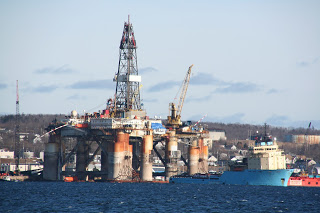The two Atlantic offshore petroleum boards and federal entities are not adequately prepared to respond to a major oil spill if needed, says Scott Vaughan, the Commissioner of the Environment and Sustainable Development, in his report tabled today in Parliament. The audit examined the activities of the Canada–Nova Scotia and the Canada–Newfoundland and Labrador offshore petroleum boards, and the support provided to them by Transport Canada, Natural Resources Canada, Environment Canada, and Fisheries and Oceans Canada, including the Canadian Coast Guard.
“While the Canada–Nova Scotia and the Canada–Newfoundland and Labrador boards have adequately managed the day-to-day environmental impacts of offshore oil and gas activities, they and their federal partners need to do more to prepare for a major oil spill,” said Mr. Vaughan.
The boards can take over managing the response to a major spill if the responsible offshore oil and gas operators fail to respond appropriately. However, the audit identified several deficiencies that limit the boards’ ability to step in effectively. For example, the boards and federal entities have not tested their collective plans or collective capacity, and roles and responsibilities are not always clear in their response plans. In addition, the Newfoundland–Labrador Board has yet to finish an assessment of operators’ spill response capabilities, begun in 2008.
The audit found that the boards have applied some good practices when assessing and approving offshore projects and activities. They have also taken adequate steps to ensure that offshore operators comply with environmental requirements. However, they have not established or updated policies and procedures to guide environmental assessments, and they are not systematically tracking measures to prevent or reduce environmental impacts. They will also need to determine how to adjust to changes to the environmental emergencies regime and the new Canadian Environmental Assessment Act, 2012.
“The boards’ responsibilities have been significantly affected by recent changes to the federal environmental assessment process,” said Mr. Vaughan. “I am also concerned that some basic working arrangements for responding to environmental emergencies have yet to be sorted out.”
The chapter “Atlantic Offshore Oil and Gas Activities” is available on the Office of the Auditor General of Canada website.
For more information, please click here.

